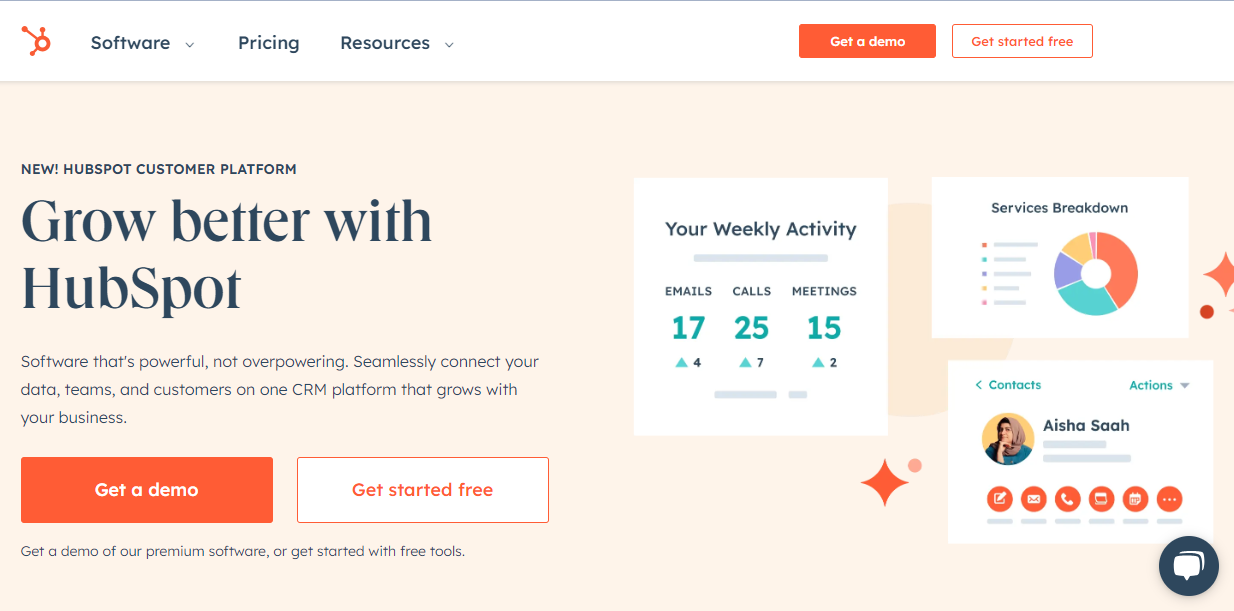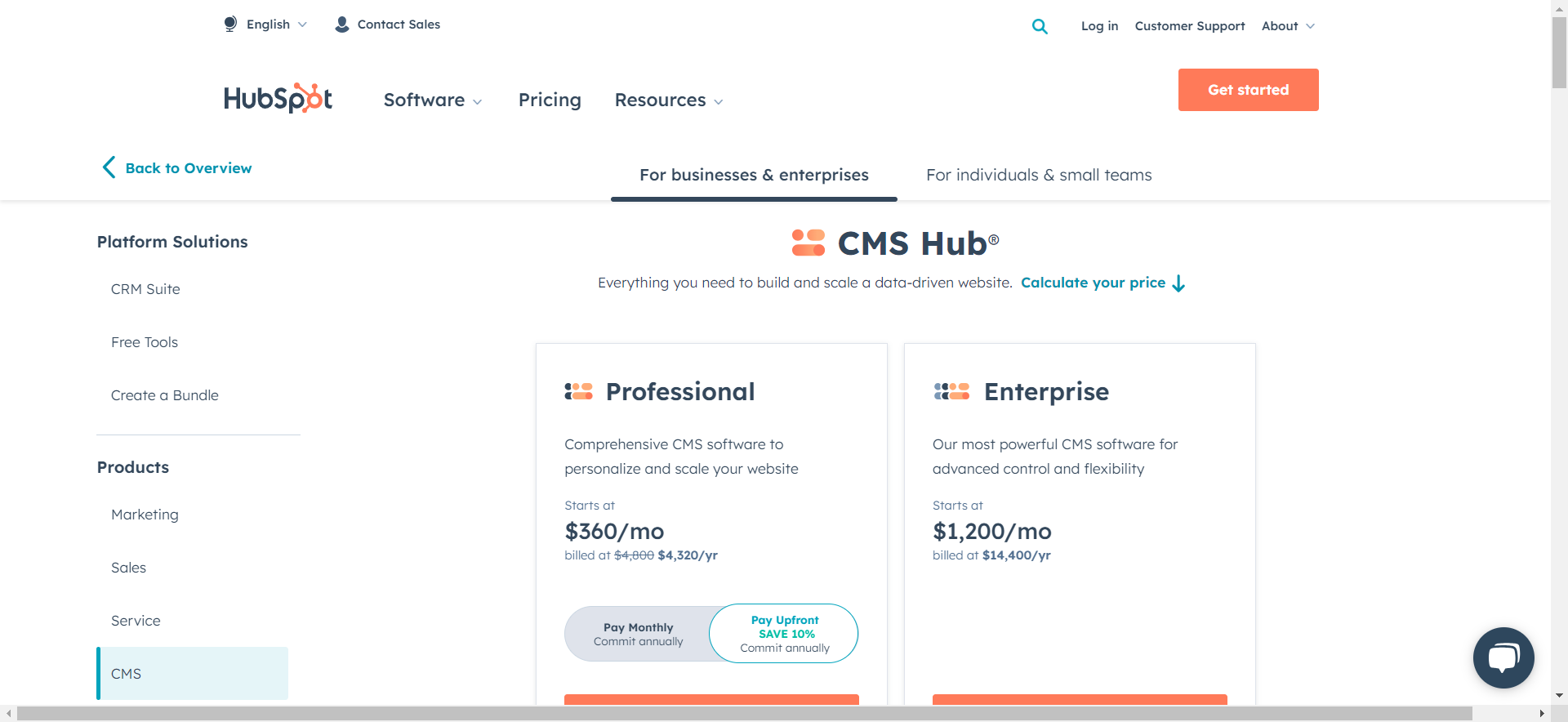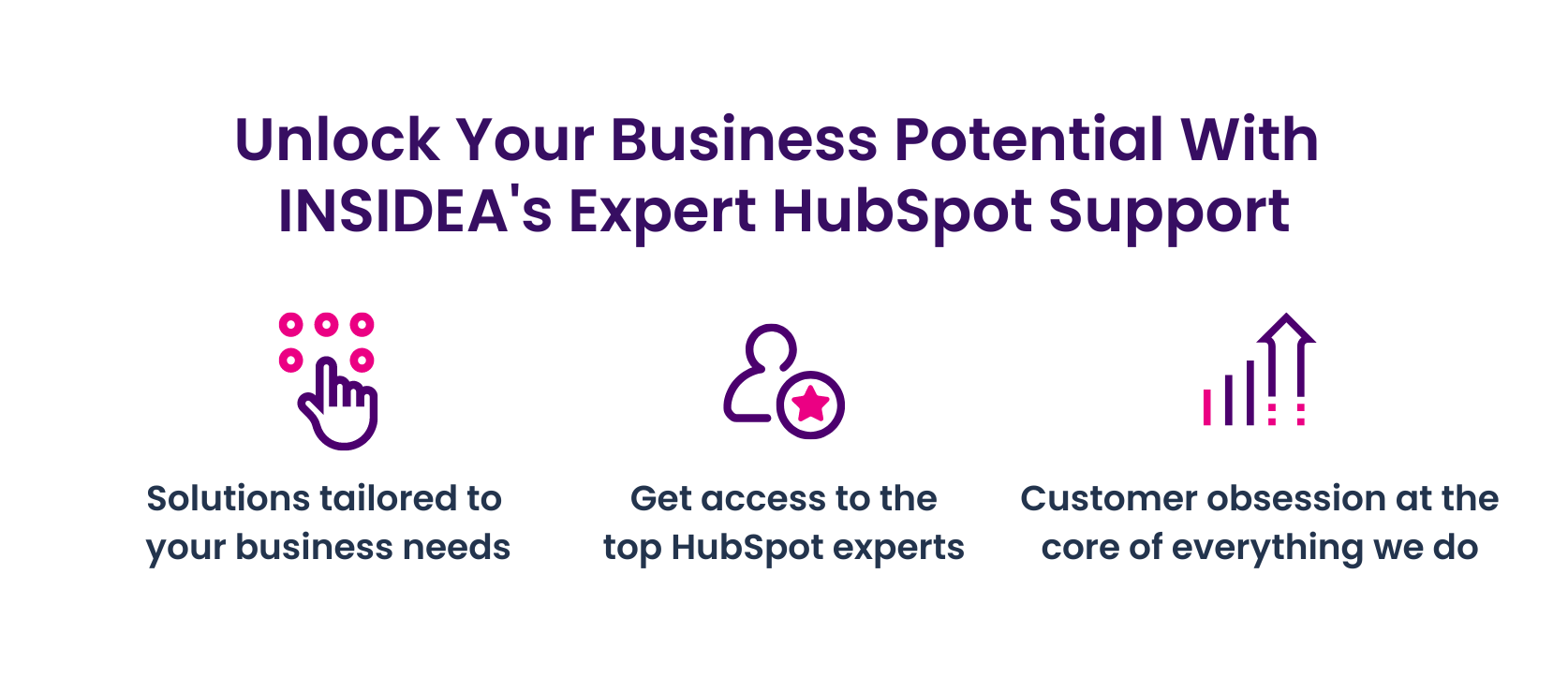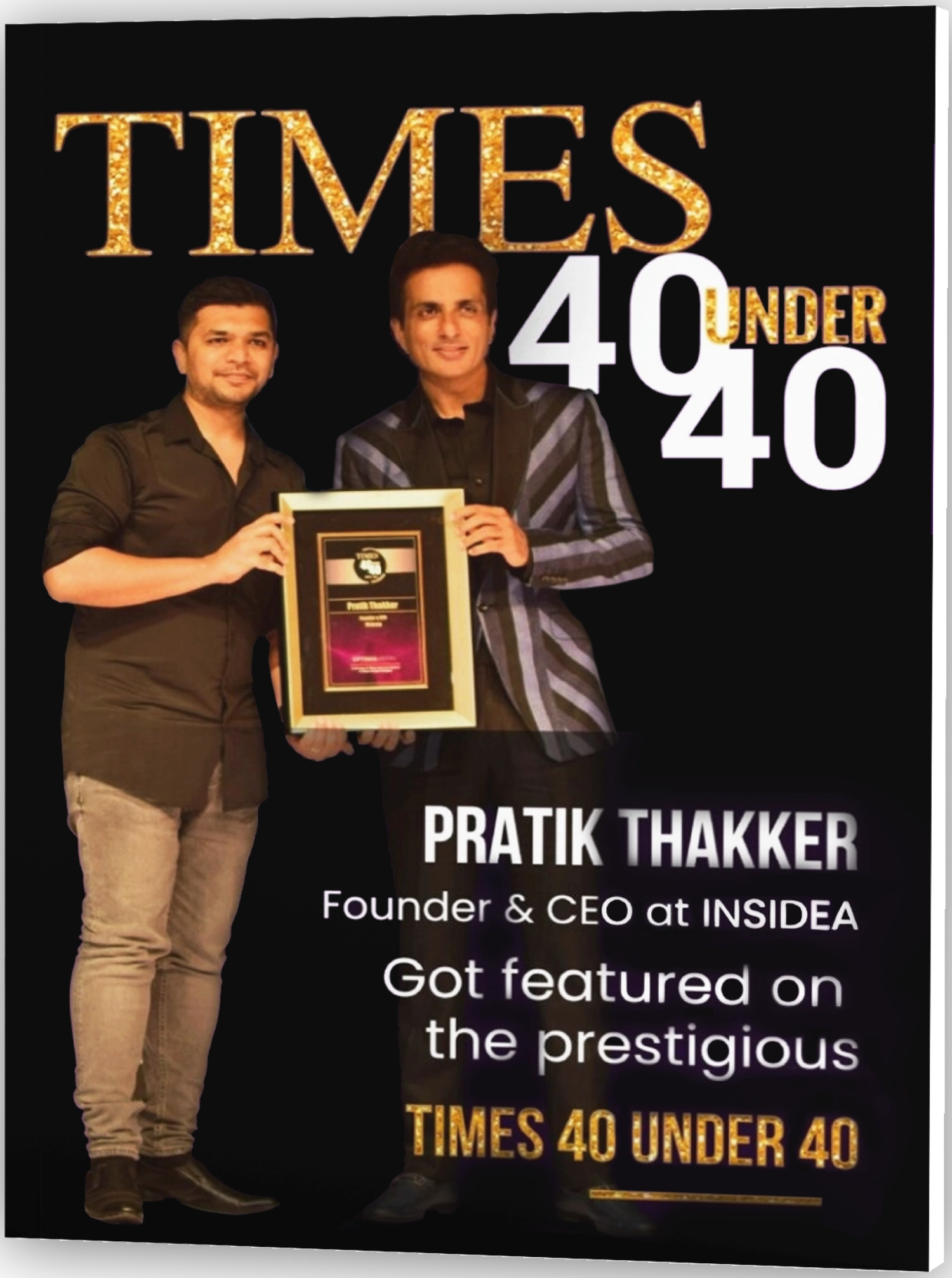Are you in the process of selecting a content management system (CMS) for your website but feeling overwhelmed by the choices? It’s a decision that carries weight, as the right CMS can be an invaluable CMS for your online success.
In the world of website creation and management, HubSpot and WordPress have emerged as leading platforms, each offering a suite of tools designed to cater to different needs. But how do you decide which one is right for you?
WordPress has dominated the CMS platform for almost 10 years, powering more than half of all websites and establishing the standard for content management systems. However, an impressive competitor has grown up in the digital sphere. HubSpot CMS has been gradually gaining pace since its introduction in 2020, upsetting the status quo and offering itself as a noteworthy option in the field of website management.
In this detailed comparison, we’ll explore the ins and outs of HubSpot and WordPress, laying out their strengths and helping you understand which platform aligns best with your business goals. So, let’s delve into the features, ease of use, and scalability of HubSpot and WordPress and find out which could be the cornerstones of your digital strategy.
HubSpot vs. WordPress
Let’s streamline your decision-making with a brief comparison of WordPress and HubSpot. Get a glance at both platforms.
HubSpot

HubSpot is an all-in-one platform. It’s not just about creating content; it’s about managing your entire business ecosystem. From CRM functionalities that streamline client interactions to a content management system that ensures your message resonates, HubSpot offers a comprehensive suite tailored for marketing, sales, and service. And its unified functionalities that address multiple business operations are its biggest USP.
WordPress

Image Source: WordPress
Originating as a blogging platform, WordPress has grown to become a powerful content management system. Its strength lies in its flexibility. With a vast array of themes and plugins, businesses can tailor their site to their needs. However, this customization often requires combining different tools to achieve a holistic business solution.
5 Comparison Matrices You Need To Know – HubSpot vs. WordPress
Here is a detailed comparison of our favorite CMS tools – HubSpot vs. WordPress
Let’s get started.
1. User Experience and Interface: HubSpot Vs WordPress
A streamlined interface can save time, reduce errors, and enhance collaboration. Let’s compare the user-centric designs of HubSpot and WordPress to determine which platform offers a more intuitive experience.
HubSpot
- Intuitive Design: HubSpot’s dashboard is meticulously crafted to ensure ease of use. Users can quickly navigate between tools and features, making daily tasks more efficient.
- Unified Experience: With everything from CRM to content creation housed under one roof, users benefit from a consistent and integrated experience.
- Collaboration Made Easy: HubSpot’s design promotes collaboration, allowing multiple users to work seamlessly on shared projects.
WordPress
- Customizable Interface: WordPress offers flexibility, allowing users to tailor their dashboard using plugins and widgets.
- Learning Curve: While powerful, newcomers might need time to familiarize themselves with the platform, especially as more plugins are added.
- Plugin Dependency: The user experience can vary based on the plugins installed. Some enhance the interface, while others might complicate it.
2. Integration Capabilities: HubSpot vs. WordPress
Now, let us discuss the integration capabilities of HubSpot and WordPress to see which platform offers a more interconnected ecosystem.
HubSpot
- Broad Integration Spectrum: HubSpot is engineered to effortlessly sync with many third-party applications, ensuring businesses have the tools they need at their fingertips.
- Built-in Tools: HubSpot’s native tools often reduce the dependency on external integrations, offering businesses a more cohesive experience.
- Centralized Data Flow: With HubSpot’s integrations, data flows smoothly across platforms, ensuring businesses have a unified and up-to-date view of their operations.
WordPress
- Plugin-Powered Integrations: WordPress’s open-source framework allows various plugins that enable integrations with various tools and platforms.
- Customization Potential: The flexibility of WordPress means businesses can tailor integrations to their specific needs, though this might require more hands-on management.
- Compatibility Considerations: As businesses integrate multiple plugins, ensuring compatibility is crucial to maintaining a glitch-free environment.
3. Security and Maintenance: HubSpot vs. WordPress
A secure environment safeguards sensitive data and ensures uninterrupted business operations. Let’s juxtapose the security measures of HubSpot and WordPress to discern which platform offers a more fortified digital fortress.
HubSpot
- Proactive Security Measures: HubSpot prioritizes data protection, implementing regular security updates and patches to prevent potential threats.
- Managed Hosting: With HubSpot, businesses benefit from hosting, ensuring optimal performance and reducing vulnerability risks.
- Dedicated Monitoring: HubSpot’s vigilant security team continuously monitors the platform, swiftly addressing and mitigating anomalies or potential breaches.
WordPress
- Open-Source Vigilance: While WordPress’s core is secure, its open-source nature means that security often hinges on third-party themes and plugins.
- Regular Updates: To maintain a secure environment, businesses using WordPress must proactively update the core software, plugins, and themes.
- Security Plugins: Businesses often invest in specialized security plugins, adding another layer of protection against potential threats.
4. Scalability and Growth: HubSpot vs. WordPress
Scalability ensures that the platform can accommodate and facilitate that expansion as business demands increase without hitches. Let’s evaluate the scalability attributes of HubSpot and WordPress to identify which platform is better poised for future growth.
HubSpot
- Adaptive Framework: HubSpot is designed to cater to businesses at various growth stages, seamlessly adapting its tools and functionalities to match evolving needs.
- Integrated Growth Tools: HubSpot’s platform encompasses tools that support business expansion, from advanced analytics to lead management, ensuring businesses have the resources they need as they scale.
- Consistent Performance: HubSpot maintains its performance levels as businesses grow, ensuring increased demands don’t compromise user experience or efficiency.
WordPress
- Content Scalability: WordPress excels in scalability, allowing businesses to expand their content footprint from blogs to extensive websites.
- Plugin Expansion: As businesses grow, they might need to integrate more plugins to enhance functionality, which can introduce complexities in terms of compatibility and performance.
- Hosting Considerations: With growth, businesses might need to transition to more robust hosting solutions to maintain site performance and security.
5. Pricing and Value Proposition: HubSpot vs. WordPress
In this section, let’s break down the financial aspects of HubSpot and WordPress to determine which platform offers a more compelling economic proposition.
HubSpot

- Transparent Tiered Pricing: HubSpot’s pricing is structured in clear tiers, allowing businesses to select a plan that aligns with their needs and budget.
- All-in-One Value: The integrated nature of HubSpot means businesses often find value beyond just the platform, reducing the need for multiple standalone tools and subsequent costs.
- Predictable Expenditure: With HubSpot’s clear pricing structure, businesses can effectively budget and plan, minimizing unexpected expenses.
WordPress

- Initial Cost Advantage: WordPress’s core software is free and offers an attractive starting point for businesses.
- Add-On Expenses: While the base platform is free, costs can occur with premium themes, plugins, and specialized hosting solutions.
- Customization Costs: The flexibility of WordPress means businesses can tailor their site extensively, but this can sometimes introduce additional development and maintenance costs.
HubSpot or WordPress?
We have discussed both the tools and how they can shape the trajectory of your campaign’s success. However, while both platforms offer robust functionalities, HubSpot provides a more integrated approach to business management, whereas WordPress focuses primarily on content creation and presentation.
The choice boils down to what your business prioritizes: a singular platform for diverse needs or a specialized platform with potential add-ons.
Unlock Your Business Potential With Expert HubSpot Support!

As a HubSpot Solutions Partner, we take pride in assisting you with streamlining your HubSpot efforts. With our best-in-class marketing, sales, and service solutions, we help you scale exponentially. INSIDEA’s HubSpot Specialists have the required in-depth knowledge and can provide expert guidance on how to use the platform to meet your business needs.
Get in touch today to learn more about how INSIDEA can help you succeed!
- Tailored Experience: For us, user experience is the primary focus. Thus, INSIDEA works with you to ensure your HubSpot experience is tailored to your business needs.
- Industry Expertise: Our team specializes in the setup, implementation, and optimization of HubSpot tools, as well as is well-versed in HubSpot best practices to ensure your business has the highest ROI possible.
- Customer Obsession: For us, customer satisfaction is the key to success, and we strive to ensure that our customers’ needs are not only met but exceeded every time.
At INSIDEA, we understand the importance of valuable HubSpot strategies that understand your target audience and drive conversions. Book a meeting with our experts to explore how we can help you out with your upcoming projects.








































